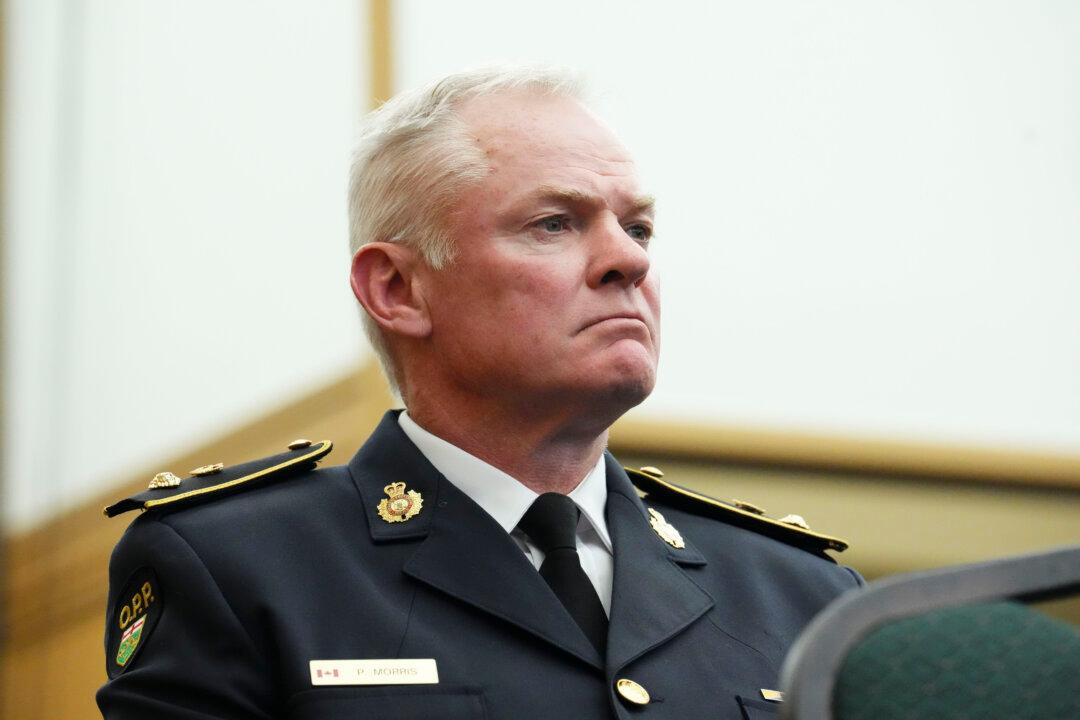The head of Ontario Provincial Police’s intelligence unit says he was concerned with false allegations of extremism against convoy protesters by politicians and the media.
“I was concerned by comments made publicly by public figures and in the media that I believed were not premised in fact,” Supt. Pat Morris, head of OPP’s Provincial Operations Intelligence Bureau, told the public inquiry into the federal government’s use of the Emergencies Act on Oct. 19.





